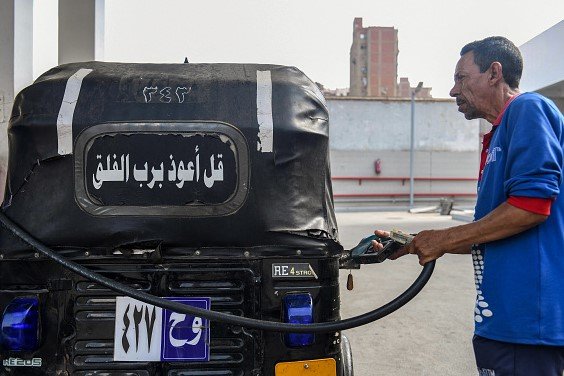Egypt has decided to keep fuel prices unchanged until October, giving citizens a short breather from the financial pinch as the economy continues to wrestle with inflation and global uncertainty.
Prime Minister Mostafa Madbouly directed the move, which effectively extends the pricing set back in April for another three months. For many households, that’s a small but welcome pause in the rising cost of living.
A Freeze That’s More Than Just Numbers
For some, fuel price announcements are just figures on paper. But for millions of Egyptians, they dictate taxi fares, the cost of moving vegetables from farms to markets, and even the price of bread in bakeries that rely on fuel-powered ovens.
This isn’t the first time Cairo has stepped in to halt a scheduled adjustment. The Automatic Fuel Pricing Committee, which usually meets every quarter, was supposed to convene in July. Instead, the session was postponed, and the April rates are staying put.
One official put it simply — stability matters more right now than chasing market alignment. And if you ask around in Cairo’s crowded markets, many will tell you they agree.
The Committee That Moves Markets
The fuel pricing system in Egypt isn’t arbitrary. Every three months, the committee reviews:
-
Global oil prices
-
Exchange rate movements
-
Domestic production and supply conditions
Those three factors together determine whether prices go up, down, or stay the same. But in times of unusual pressure, like currency volatility or geopolitical shocks, the government can step in and press pause.
This year’s pause is different. It comes as part of a broader relief package aimed at cushioning Egyptians from inflation that has eaten into purchasing power for more than two years.

Timing Is Everything
You could say this decision is as much about timing as it is about economics. October is still a few months away — long enough to reassess global oil market trends, the local currency’s performance, and inflation forecasts.
April’s prices will now hold through the hottest months of summer, when electricity demand spikes and transportation costs typically climb. By October, policymakers hope to have more clarity on whether the global economy will calm down or throw another curveball.
Some analysts believe that delaying the increase now might actually prevent steeper adjustments later. Others worry it’s only postponing the inevitable.
A Pattern of Intervention
This isn’t the first time the government has skipped an update. In fact, in recent years, Cairo has done it more than once. Officials point to “exceptional circumstances” — code for moments when passing higher fuel costs onto consumers would risk more than it’s worth.
A quick look at recent fuel price review history shows the trend:
| Scheduled Review | Outcome | Reason Cited |
|---|---|---|
| Q2 2023 | Held prices | Currency volatility |
| Q4 2023 | Held prices | Inflation relief |
| Q2 2024 | Held prices | Geopolitical instability |
| Q3 2025 | Held prices | Economic pressure |
The difference now is the combination of external oil market uncertainty and domestic inflation concerns. It’s a tricky balancing act.
What It Means for Daily Life
If you drive a taxi, own a delivery van, or run a small factory, this freeze means you can plan your next two months with fewer headaches. Transport operators won’t need to renegotiate fares overnight. Farmers delivering produce from Upper Egypt to Cairo can keep using their cost estimates from spring.
Still, the relief is relative. “It’s good they didn’t raise it,” says Ahmed, a minibus driver in Giza. “But food is still expensive. Rent is still going up.”
In other words, fuel prices might be steady, but other costs are not.
Broader Economic Picture
Egypt’s inflation rate has been stubbornly high, fueled by currency depreciation and imported price pressures. While headline inflation has shown signs of slowing, core inflation — which strips out volatile food and energy prices — remains elevated.
By keeping fuel prices stable, the government is trying to prevent a knock-on effect. A rise at the pump often sets off a chain reaction across the economy, from transportation to food and retail.
Economists note that the move also buys time for ongoing fiscal reforms and international financing talks to play out without fresh shocks to consumer confidence.
October’s Decision Will Be Telling
The big question is what happens when October arrives. If oil prices rise further or the currency faces new pressure, the government might be forced to make a bigger adjustment. But if markets stabilize, there’s a chance for a smaller, more manageable change.
For now, Cairo’s message is clear: stability over speed. Whether that works in the long run depends on what global markets — and domestic politics — throw into the mix before autumn.








